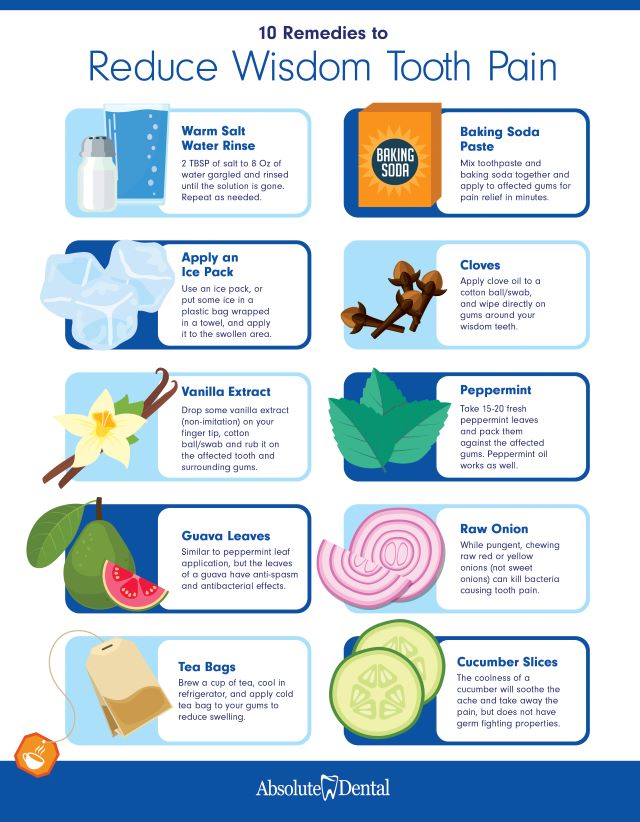To alleviate toothache during pregnancy, try rinsing with warm saltwater or applying a cold compress. Clove oil can also temporarily reduce pain.
Dealing with a toothache can be particularly challenging during pregnancy, given the limitations on medications and treatments. Pregnant women seek safe home remedies to manage discomfort without harming their developing baby. Saltwater is a natural disinfectant; swishing it around the mouth can ease inflammation and kill bacteria.
Cold compresses are another safe option, offering numbness to the affected area, which can be quite soothing. Clove oil, known for its eugenol content, can act as a natural anesthetic, providing temporary relief from dental pain. These remedies not only offer relief but also ensure safety for both the mother and the unborn child, making them ideal for managing toothaches at home during this sensitive time.
Introduction To Toothache During Pregnancy
Toothache during pregnancy can be a common yet troubling symptom. Understanding its causes and the importance of dental care is crucial for the comfort and health of expectant mothers.
Common Causes Of Dental Pain In Expectant Mothers
Pregnancy induces various hormonal changes that increase the risk of dental problems. Here are the main causes:
- Gum disease: Increased hormone levels can lead to sensitive, swollen gums.
- Tooth decay: Cravings for sugary foods can increase during pregnancy, boosting decay risk.
- Enamel erosion: Morning sickness can expose teeth to stomach acids, wearing down enamel.
Importance Of Dental Care During Pregnancy
Keeping teeth and gums healthy during pregnancy is vital. It not only prevents pain but also safeguards the baby’s health.
- Prevent complications: Gum disease can lead to premature birth and low birth weight.
- Reduce discomfort: Regular dental check-ups help catch and treat problems early.
- Overall health: Good oral hygiene is part of overall prenatal care.
Safety Considerations For Pregnant Women
Pregnancy brings a heightened sense of caution for women, especially when dealing with pain. Toothache during this time is no exception. Safety is paramount. Expecting mothers need remedies that are effective and, most importantly, safe for both mother and baby. Let’s explore the safest home remedies and when to seek professional help.
Risks Of Traditional Pain Relief Methods
Pregnant women often avoid traditional painkillers to protect their unborn child. Medications like aspirin, ibuprofen, and naproxen can carry risks, especially during the third trimester. They may lead to complications in pregnancy and affect the baby’s development. Always check with a healthcare provider before taking any over-the-counter medication.
- Aspirin and other NSAIDs: Can cause issues with blood clotting and prolong labor.
- Opioids: May lead to dependency or withdrawal symptoms in the newborn.
- Excessive use of acetaminophen: While generally safer, always adhere to recommended dosages.
Consulting With A Dentist: When Is It Necessary?
Occasional mild toothache can often be managed at home. Severe, persistent, or recurring pain signals the need for a dentist’s expertise. Signs like swelling, fever, or pain when biting could indicate an infection that requires immediate attention. A dentist can provide pregnancy-safe treatments.
| Symptom | Action |
|---|---|
| Mild Pain | Home remedies; monitor closely. |
| Severe Pain | Consult dentist immediately. |
| Swelling or Fever | Seek professional care urgently. |
Remember, dental health is a vital part of prenatal care. Regular check-ups can prevent emergencies. In case of any doubts, contact your dentist. They can guide you to safe and suitable treatment options during pregnancy.
Natural Remedies For Toothache Relief
Dealing with a toothache can be tough, especially during pregnancy. Pregnant women need safe, effective solutions to manage pain without harming their baby. Natural remedies offer relief with minimal risk.
Salt Water Rinse: A Gentle Antiseptic
Salt water rinse is a simple yet powerful remedy for toothache. It’s safe for expectant mothers and can help reduce bacteria.
- Mix half a teaspoon of salt into a glass of warm water.
- Gargle the solution for up to 30 seconds.
- Spit it out. Avoid swallowing to prevent excess salt intake.
This rinse can soothe inflamed gums and clean the affected area. Repeat up to three times daily for best results.
Cold Compresses: Reducing Swelling And Pain
Cold compresses can help numb a painful tooth. They also decrease swelling, providing comfort.
- Wrap ice in a clean cloth.
- Apply to the cheek near the sore tooth.
- Hold for 15 minutes, then break for 15 minutes.
Repeat as needed. Be sure to avoid direct ice-to-skin contact to prevent irritation.

Credit: crest.com
Herbal Solutions For Dental Discomfort
Herbal Solutions for Dental Discomfort are essential during pregnancy. Expecting mothers need safe remedies for toothache relief. Herbs can be powerful allies in this battle. They offer natural anesthetic and anti-inflammatory properties. Many herbal remedies are both effective and gentle.
Clove Oil Application: A Natural Anesthetic
Clove oil is a go-to for toothaches. It contains eugenol, which numbs dental pain. Pregnant women can use it with ease. Here’s how:
- Prepare a clean cotton swab.
- Dip the swab into clove oil.
- Apply gently to the affected tooth.
- Repeat as needed.
Use sparingly, as clove oil is potent. Always opt for high-quality, pure clove oil.
Chamomile Tea: Soothing Anti-inflammatory Effects
Chamomile tea is another safe remedy. It eases toothache through its calming effects. It reduces inflammation and soothes discomfort. Here’s a simple method:
- Brew a cup of chamomile tea.
- Allow it to cool down.
- Take small sips and swish around the mouth.
- Do not swallow the tea.
- Spit it out after swishing.
Chamomile tea bags can also serve as a compress. Apply a cooled tea bag to the painful area. This helps in reducing swelling and pain.
Dietary Adjustments To Alleviate Tooth Pain
Experiencing toothache during pregnancy can be distressing. Yet, there are safe and effective ways to ease the discomfort through diet. Dietary adjustments play a crucial role in oral health. Certain foods can help reduce tooth pain, while others might exacerbate it. Let’s explore the best dietary practices for managing toothache during pregnancy.
Foods To Eat And Avoid
Eating the right foods is vital for dental health, especially when pregnant. Here’s a quick guide:
- Calcium-rich foods like dairy, leafy greens, and almonds support strong teeth.
- Fiber-rich fruits and vegetables like apples and carrots can clean teeth naturally.
- Foods high in vitamin C, such as oranges and bell peppers, promote gum health.
Avoid foods that can harm your teeth:
- Sugary snacks can lead to decay and increased pain.
- Hard or sticky candies are tough on teeth and fillings.
- Acidic foods may aggravate tooth sensitivity and pain.
Staying Hydrated: The Role Of Water In Dental Health
Water is a key ally in maintaining oral hygiene. It helps by:
- Rinsing away food particles.
- Reducing acidity in the mouth.
- Encouraging saliva production.
Drinking plenty of water throughout the day keeps the mouth clean and pain at bay. Aim for at least 8 glasses daily.

Credit: www.absolutedental.com
Preventive Measures To Avoid Toothache
Pregnant women often face dental issues like toothache due to hormonal changes. Preventing toothache is key to avoiding discomfort and potential risks. Let’s dive into effective preventive measures.
Routine Oral Hygiene Practices
Maintaining daily oral hygiene is essential for a healthy mouth. Brush twice a day with fluoride toothpaste. Use floss to remove food particles. Rinsing with an alcohol-free mouthwash can also help.
- Brush gently to avoid gum irritation.
- Choose a soft-bristled toothbrush for comfort.
- Replace your toothbrush every three months.
Regular Dental Checkups: Planning Around Pregnancy
Schedule dental visits before conception and after the first trimester. Inform your dentist about your pregnancy. They can plan safe treatments.
| Timing | Type of Visit | Considerations |
|---|---|---|
| Pre-Pregnancy | Checkup & Cleaning | Address issues early |
| Second Trimester | Routine Visit | Least risk for procedures |
| Third Trimester | Emergency Only | Limit stress on the body |
Regular checkups help catch problems early. Avoid X-rays unless necessary. Always consult your OB-GYN before dental treatments.
The Role Of Vitamins And Supplements
Pregnancy can bring various dental challenges, including toothaches. Proper nutrition is not just essential for your overall health but also for oral health. Vitamins and supplements play a pivotal role in maintaining healthy teeth and gums during pregnancy. Let’s explore how specific vitamins can help alleviate toothache and promote dental health.
Calcium And Vitamin D: Building Blocks For Healthy Teeth
Calcium is a crucial mineral for developing strong teeth and bones. It’s even more vital during pregnancy. Your body needs Vitamin D to absorb calcium effectively. Together, they prevent tooth decay and support your baby’s bone development.
- Calcium-rich foods include dairy products, leafy greens, and almonds.
- Vitamin D can be found in fatty fish, fortified foods, and sunlight.
Taking calcium and vitamin D supplements can help ensure you’re getting enough of these important nutrients. Always consult with your healthcare provider before starting any supplements.
Vitamin C: Strengthening Gums And Reducing Pain
Vitamin C is essential for gum health. It helps to build collagen which keeps gums strong. Strong gums are less likely to become inflamed, reducing toothache.
- Citrus fruits, strawberries, and bell peppers are great sources of Vitamin C.
- Supplementing with Vitamin C can be a safe way to increase your intake.
Remember, overconsumption can cause problems. Stick to the recommended dietary allowance, especially during pregnancy.
When Home Remedies Aren’t Enough
Expecting mothers often experience toothaches, leading them to seek gentle home remedies. Yet, some situations call for professional dental care. It’s crucial to identify signs that may indicate a more serious issue. Ignoring these could harm both mother and baby.
Identifying Signs That Require Professional Care
While minor discomfort may be alleviated with natural solutions, certain symptoms must not be overlooked. These include:
- Persistent pain lasting more than two days
- Swelling in the face or gums
- Signs of infection, such as fever or pus
- Broken teeth or lost fillings
- Gum bleeding that doesn’t stop
If you notice any of these symptoms, contact a dentist immediately. Timely care prevents complications.
Safe Dental Procedures During Pregnancy
Professional dental work can be safe during pregnancy. Dentists can perform many procedures without risk. Here’s what’s considered safe:
| Procedure | Safety Level |
|---|---|
| Check-ups | Safe throughout pregnancy |
| Cleanings | Safe and recommended |
| X-rays | Safe with proper shielding |
| Fillings and crowns | Safe, especially during second trimester |
| Root canals | Safe, important to prevent infection |
Always inform your dentist about your pregnancy. They will take extra precautions to ensure your comfort and safety. Dental health affects overall pregnancy wellness. Don’t delay seeking professional care when needed.

Credit: www.pinterest.com
Frequently Asked Questions
How Do You Get Rid Of A Toothache While Pregnant?
To alleviate toothache during pregnancy, consult your dentist for safe pain relief options and maintain good oral hygiene. Use a cold compress and avoid medications unless prescribed by a healthcare provider.
What Can A Pregnant Woman Take For Tooth Infection?
A pregnant woman should consult her doctor before taking medication for a tooth infection. Safe options often include certain antibiotics like amoxicillin. Regular dental check-ups and good oral hygiene can help prevent infections.
How Can I Sleep With A Toothache While Pregnant?
To manage a toothache while pregnant, try these tips: Elevate your head with extra pillows to reduce pressure. Use a cold compress for 15-minute intervals. Rinse with warm saltwater. Avoid sugary or very cold foods. Consult your dentist and discuss safe pain relief options.
Can A Pregnant Woman Remove An Aching Tooth?
Yes, a pregnant woman can have a tooth extraction, but it’s essential to consult with a dentist and inform them about the pregnancy for appropriate care.
Conclusion
Navigating toothache during pregnancy can be challenging, yet home remedies offer a safe haven. Embrace these gentle, natural solutions to alleviate discomfort while protecting your baby’s health. Remember, consulting with your dentist or doctor is crucial before trying any new treatment.
May your path to relief be as smooth as a mother’s caress.

